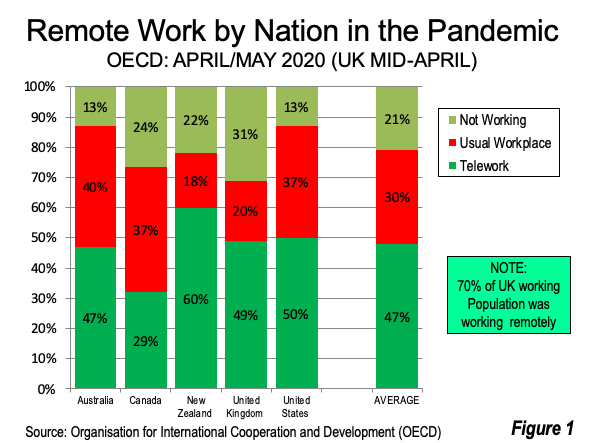In an article entitled “Financial hit from Covid far less drastic than feared,” The Times of London reported on July 8 reported that “Unemployment, debt and earnings have not worsened significantly as a result of the pandemic, Britain’s leading economic think tank has concluded, hailing the findings as “astonishing”.
The report by the Institute of Fiscal Studies (IFS) expressed “surprise” that unemployment is much lower than was expected, that there has been only a small increase in people in arrears on bills and that the number of people using food banks increased minimally during the pandemic and is now below pre-pandemic levels.
At the same time, IFS noted “while the national picture was remarkable, its figures masked groups who have seen clear increases in hardship, particularly the self-employed and families already experiencing in-work poverty before the pandemic hit.”
The article attributed the positive developments to government interventions to support working people, more than one-third of whom received government support during the pandemic.
We add that, had it not been for the conversion to remote work, these results could not have been achieved. According to the OECD (See Note below), in Mid April of 2020, 49% of the United Kingdom pre-pandemic work force was working remotely, while 20% were working at their physical employment locations, leaving 31% who were not working (Figure). This data suggests that about 70% of the working population was teleworking (Figure). Had remote work not been embraced, the unemployment rate would have been far higher and the economic disruption would likely have been at least as bad as the most dire expectations.
Note: OECD, “Working during COVID-19: Cross-country evidence from real-time survey data.” At oecd-ilibrary.org
Wendell Cox is principal of Demographia, an international public policy firm located in the St. Louis metropolitan area. He is a founding senior fellow at the Urban Reform Institute, Houston, a Senior Fellow with the Frontier Centre for Public Policy in Winnipeg and a member of the Advisory Board of the Center for Demographics and Policy at Chapman University in Orange, California. He has served as a visiting professor at the Conservatoire National des Arts et Metiers in Paris. His principal interests are economics, poverty alleviation, demographics, urban policy and transport. He is co-author of the annual Demographia International Housing Affordability Survey and author of Demographia World Urban Areas.
Mayor Tom Bradley appointed him to three terms on the Los Angeles County Transportation Commission (1977-1985) and Speaker of the House Newt Gingrich appointed him to the Amtrak Reform Council, to complete the unexpired term of New Jersey Governor Christine Todd Whitman (1999-2002). He is author of War on the Dream: How Anti-Sprawl Policy Threatens the Quality of Life and Toward More Prosperous Cities: A Framing Essay on Urban Areas, Transport, Planning and the Dimensions of Sustainability.













